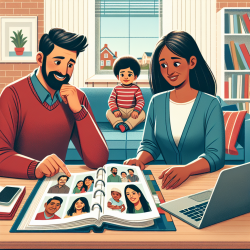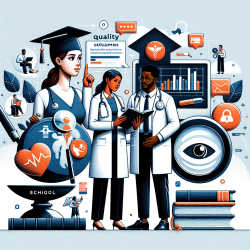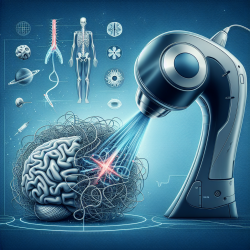The shift from traditional face-to-face teaching to online learning has been a significant transformation in education, especially during the COVID-19 pandemic. The research article "Dissolving the Dichotomies Between Online and Campus-Based Teaching: a Collective Response to The Manifesto for Teaching Online" by Bayne et al. (2020) provides insightful outcomes that can help practitioners in online therapy, such as those at TinyEYE, improve their skills and approaches.
Here are some key takeaways from the research and how they can be applied to online therapy:
Embrace Multimodality
The study emphasizes the importance of multimodal teaching methods, which involve using various forms of media and technology to enhance learning experiences. For online therapists, this means integrating videos, interactive activities, and digital tools to create engaging and effective therapy sessions. By using a mix of visual, auditory, and interactive elements, therapists can cater to different learning styles and needs of students.
Foster Digital Literacy
Digital literacy is crucial for both therapists and students. The research highlights that today’s learners are digitally literate but not necessarily digitally fluent. Therapists should aim to improve their digital fluency by staying updated with the latest digital tools and platforms. This can help them better navigate online environments and provide more effective therapy sessions. Additionally, therapists should encourage students to develop their digital skills, which can enhance their overall learning experience.
Promote Equity and Inclusion
The study points out that online learning can benefit students with disabilities and those from marginalized groups. Online therapists should ensure their sessions are accessible to all students by using tools like captions, screen readers, and other assistive technologies. It's also essential to create an inclusive environment where all students feel valued and supported. This can be achieved by being mindful of students' diverse backgrounds and needs and adapting therapy sessions accordingly.
Encourage Dialogic Teaching
Dialogic teaching, which involves using dialogue to stimulate and extend a learner’s thinking, is another critical aspect highlighted in the research. Online therapists can implement this by encouraging open communication and discussions during therapy sessions. This approach helps build a strong therapist-student relationship and promotes a deeper understanding of the therapy content.
Adapt to Technological Advancements
Technology is continuously evolving, and it's essential for online therapists to stay current with these changes. The research suggests that educators should not only use traditional teaching methods but also integrate new digital tools to enhance learning. For online therapy, this could mean incorporating virtual reality, gamification, and other innovative technologies to make therapy sessions more interactive and engaging.
Continuous Professional Development
The research underscores the importance of ongoing professional development for educators. Online therapists should engage in continuous learning and training to keep their skills sharp and stay informed about the latest trends and best practices in online therapy. This commitment to professional growth can lead to more effective therapy sessions and better outcomes for students.
By implementing these outcomes from Bayne et al.'s (2020) research, online therapists at TinyEYE can enhance their skills and provide more effective and inclusive therapy sessions. The transition to online learning presents unique challenges and opportunities, and staying informed and adaptable is key to success.
To read the original research paper, please follow this link: Dissolving the Dichotomies Between Online and Campus-Based Teaching: a Collective Response to The Manifesto for Teaching Online (Bayne et al. 2020)










